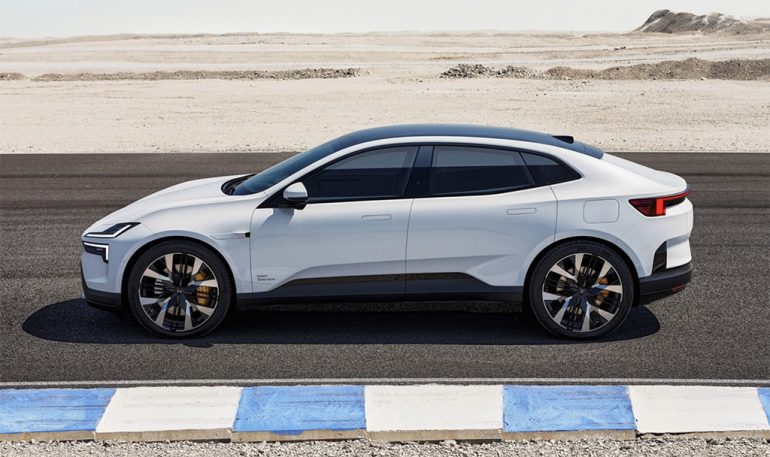
Polestar is aiming to revolutionize electric vehicle (EV) charging with a pioneering battery technology developed by Israeli-based start-up StoreDot. The breakthrough promises to address a critical concern surrounding EVs—lengthy charging times. The technology, known as “100-in-5,” claims to add 100 miles of range in just five minutes, a speed comparable to filling up a gas tank for traditional vehicles.
Unlike conventional battery chemistry, StoreDot’s innovation, called XFC cells, asserts that repeated fast-charging will not degrade battery life. This development is seen as a game-changer in the EV industry, where long charging durations have been a major obstacle to widespread public adoption.
Polestar CEO Thomas Ingenlath expressed enthusiasm about the potential advantages of a battery that can recharge in minutes, emphasizing its significance for the company. During the “Polestar Day” event in Los Angeles, he announced the company’s commitment to fleet testing StoreDot’s technology by 2024, with the ambitious goal of integrating it into a production vehicle, possibly the Polestar 5, by 2027.
StoreDot’s XFC cells are already undergoing testing by other automakers, including Mercedes-Benz, and energy companies like BP. However, Polestar is leading the pack by committing to full-scale, driveable prototype testing. StoreDot CEO Doron Myersdorf considers Polestar’s endorsement as a strong signal that the technology is approaching mass production readiness.
While various alternatives to current lithium-ion battery technology are being explored in the EV industry, StoreDot’s approach, though not fully solid-state, promises benefits similar to solid-state cells. It incorporates alternating solid and liquid layers, aiming to deliver not only rapid charging but also improved performance and cost-efficiency.
Competitors in the race to develop advanced batteries face challenges such as heat build-up during quick charging, which typically degrades battery life. StoreDot claims its technology has demonstrated no degradation after 1,000 charge-discharge cycles, providing confidence in its viability for EV applications.
For optimal performance, vehicles equipped with StoreDot batteries would need to connect to chargers capable of delivering at least 350 kilowatts of power. While these high-power chargers are becoming more common at public charging stations, even at lower power levels, StoreDot batteries are expected to outperform existing technologies.
StoreDot, based in Israel’s automotive research hub, Herzliya, initially focused on smartphone applications before pivoting to automotive technology in 2017 with a strategic investment from Daimler AG. The company has raised $200 million to date but is actively seeking an additional $150 million to advance its technology to the commercial level, including potential production plant investments.
As for Polestar, its dedication to embracing innovative battery technology reflects the ongoing competition among automakers and suppliers to overcome the limitations of current battery technologies. Despite facing delivery challenges in 2023, Polestar remains optimistic about future growth as it expands its product lineup.
Source: Headlight.News

Lloyd Tobias is a seasoned automotive journalist and passionate enthusiast with over 15 years of experience immersed in the world of cars. Whether it’s exploring the latest advancements in automotive technology or keeping a close pulse on breaking industry news, Lloyd brings a sharp perspective and a deep appreciation for all things automotive. His writing blends technical insight with real-world enthusiasm, making his contributions both informative and engaging for readers who share his love for the drive. When he’s not behind the keyboard or under the hood, Lloyd enjoys test driving the newest models and staying ahead of the curve in an ever-evolving automotive landscape.